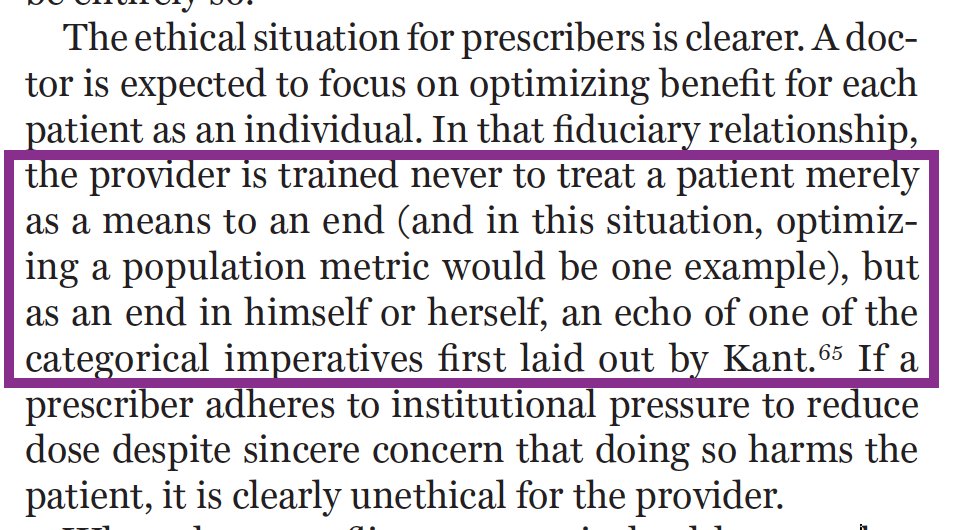
1/Bravo to Dr. @BethDarnall for stating (and better, helping lead a trial) ethical principles of a taper in which the patient is the agent, it's voluntary, and dose might go UP too. Thank-you @OldHeadFighta for the image in the next Tweet that captures the ethics here
https://twitter.com/BethDarnall/status/1336889542578585601
2/Yes yes @OldHeadFighta - this gets at the reality that the principle is here is not just clinical but ETHICAL (and then I'll get to ethics)
https://twitter.com/OldHeadFighta/status/1336878742426312704?s=20
3/The obligation upon clinicians is to treat the people in our care as full-fledged. Don't treat patients as means to an end, we wrote. Mandated dose reductions of opioids are "Not Justifiable Clinically or Ethically": pubmed.ncbi.nlm.nih.gov/32631183/ 

4/Our @OnHealer podcast tells a story of clinicians who lost track of what their goal was, and a patient who was nearly lost entirely- due protection for anonymity is made through altering some characteristics & use of a fictitious clinic.
pod.link/healer/episode…
pod.link/healer/episode…
• • •
Missing some Tweet in this thread? You can try to
force a refresh






